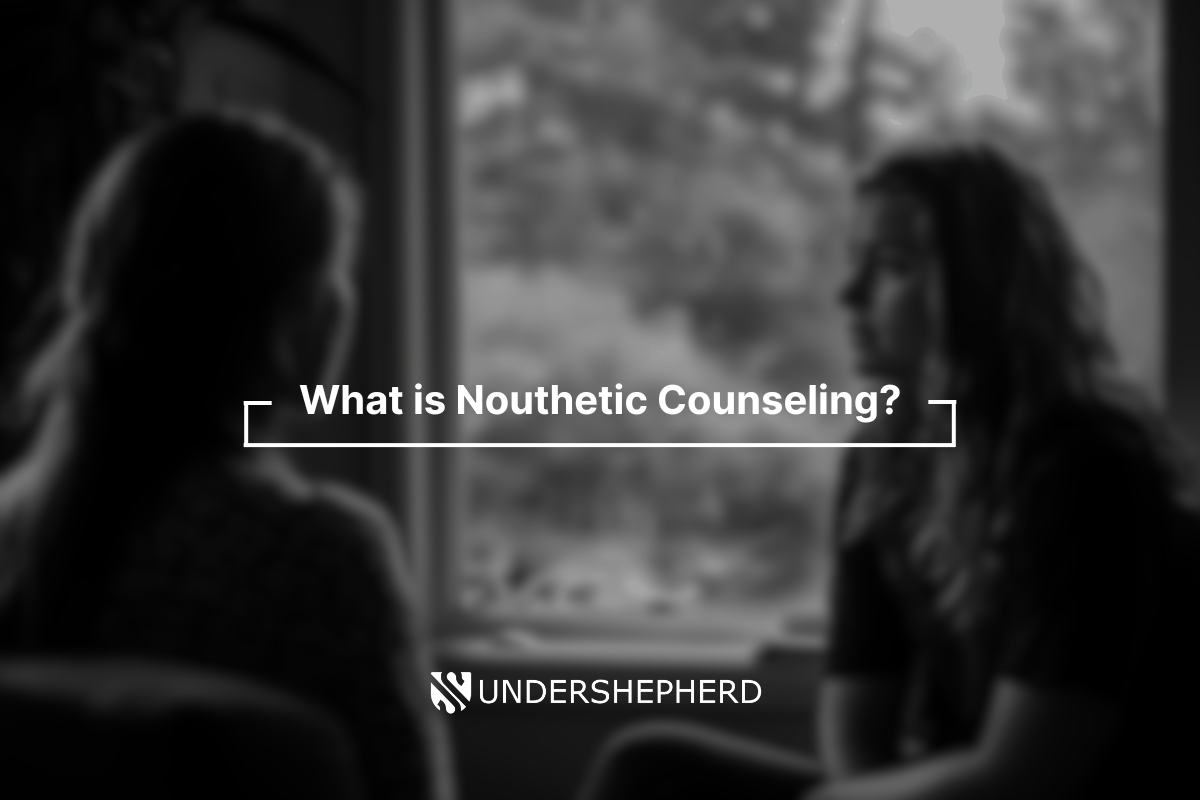Nouthetic counseling is a distinctly biblical approach to counseling, addressing the problems of life by rooting counsel in the sufficiency of Scripture and the transformative power of the gospel. It derives its name from the Greek word noutheteō, meaning “to admonish, warn, or instruct.” This method of counseling holds that all true healing and transformation come through the application of God’s Word, rather than secular psychological theories. It is not merely about behavior modification but aims at heart transformation through the renewing power of Scripture.
The History of Nouthetic Counseling
This counseling approach was systematized in the 1970s by Jay Adams, a pastor and theologian who saw the need to return Christian counseling to its biblical foundations. Adams, recognizing the growing secular influence in counseling methods, developed a framework that rejected humanistic psychology in favor of direct biblical confrontation and application. His book Competent to Counsel (1970) became the foundational text of the movement, arguing that Scripture alone is sufficient for addressing human struggles and sanctification.
Counseling in the church is often influenced by secular psychological theories that are at odds with biblical doctrine. Many pastors refer struggling church members to secular counselors who operate from a humanistic worldview. Adams’ work was groundbreaking in that it called the church to reclaim its responsibility in offering counseling that was explicitly biblical, Christ-centered, and gospel-driven.
Since its inception, nouthetic counseling has been championed by various theologians and institutions. The Biblical Counseling Movement, inspired by Adams’ work, has grown through leaders such as David Powlison, Heath Lambert, and organizations like the Association of Certified Biblical Counselors (ACBC). These teachers have refined Adams’ original work, making biblical counseling more comprehensive while maintaining its core principles. This has led to a resurgence in local churches developing biblical counseling ministries aimed at equipping believers to counsel one another effectively.
Key Figures in Nouthetic Counseling
Some of the most influential voices in biblical counseling include:
- Jay Adams – The founder of the modern biblical counseling movement.
- David Powlison – A major voice in biblical counseling, emphasizing the application of Scripture to the heart.
- Paul David Tripp – Emphasizes how biblical counseling must address the heart’s affections and desires.
Why Nouthetic Counseling Is Good
- It Upholds the Sufficiency of Scripture – Nouthetic counseling trusts that God’s Word is sufficient for addressing life’s challenges (2 Timothy 3:16-17). It does not deny that there are physical and medical aspects to some struggles, but it insists that Scripture is fully authoritative in matters of the soul.
- It Addresses the Root of Sin and Suffering – Nouthetic counseling recognizes that sin is often at the core of human struggles, and true healing comes through repentance, faith, and obedience to Christ. Many secular approaches merely treat symptoms, while biblical counseling seeks to address the root spiritual issues behind behaviors and emotions.
- It Fosters True Transformation – Rather than focusing solely on behavior modification, nouthetic counseling aims at heart change, leading believers into a deeper relationship with God. The goal is not merely to feel better but to live in obedience to Christ, experiencing His peace and joy.
- It Equips the Local Church – This model empowers pastors and lay leaders to counsel within the church, fostering biblical discipleship and care among the body of Christ. Every believer is called to counsel and encourage others (Romans 15:14; Galatians 6:1-2), making biblical counseling a vital component of discipleship.
- It Confronts Cultural Lies – In a world filled with shifting moral standards, self-help ideologies, and relativism, nouthetic counseling stands firmly on the unchanging truth of God’s Word. It helps Christians resist the pressures of secular worldviews that promote self-esteem over repentance and emotional validation over biblical truth.
Tips for Pastors
- Study the Scriptures Deeply – The foundation of effective counseling is a thorough knowledge of God’s Word. Pastors must be diligent students of Scripture to rightly apply it in their care for others. They should also seek wisdom from Proverbs, where counsel and instruction are repeatedly emphasized.
- Read Foundational Works – Books like Competent to Counsel by Jay Adams, Instruments in the Redeemer’s Hands by Paul David Tripp, A Theology of Biblical Counseling by Heath Lambert, and Seeing with New Eyes by David Powlison provide essential insights into the field.
- Seek Training and Certification – Organizations like ACBC offer robust training programs for pastors and lay counselors to equip them for biblical counseling. These programs provide theological grounding, practical techniques, and supervised experience in biblical counseling.
- Integrate Counseling into Discipleship – Nouthetic counseling is not an isolated ministry but should be woven into the fabric of pastoral care, discipleship, and the preaching of God’s Word. Counseling should be seen as an extension of preaching, as both involve applying God’s truth to real-life situations.
- Develop a Biblical Counseling Ministry – Churches can establish counseling ministries where trained biblical counselors help members work through struggles using Scripture. This provides an alternative to secular therapy and ensures that church members receive biblically sound guidance.
Nouthetic counseling is a return to biblical sufficiency in soul care, emphasizing the transformative power of Scripture in the lives of believers. As pastors shepherd their congregations, they must see biblical counseling not as an optional ministry but as an essential aspect of discipleship. By equipping themselves in biblical counseling, pastors can more effectively care for their people, guiding them toward Christ and true spiritual growth.
In an age where many are turning to secular solutions for spiritual problems, the church must stand firm in its commitment to the sufficiency of Scripture. Nouthetic counseling is not merely about giving advice but about faithfully applying God’s Word to real-life struggles. Pastors who embrace this model will not only help individuals but will also strengthen the church as a whole, equipping believers to counsel one another and grow in sanctification together.


